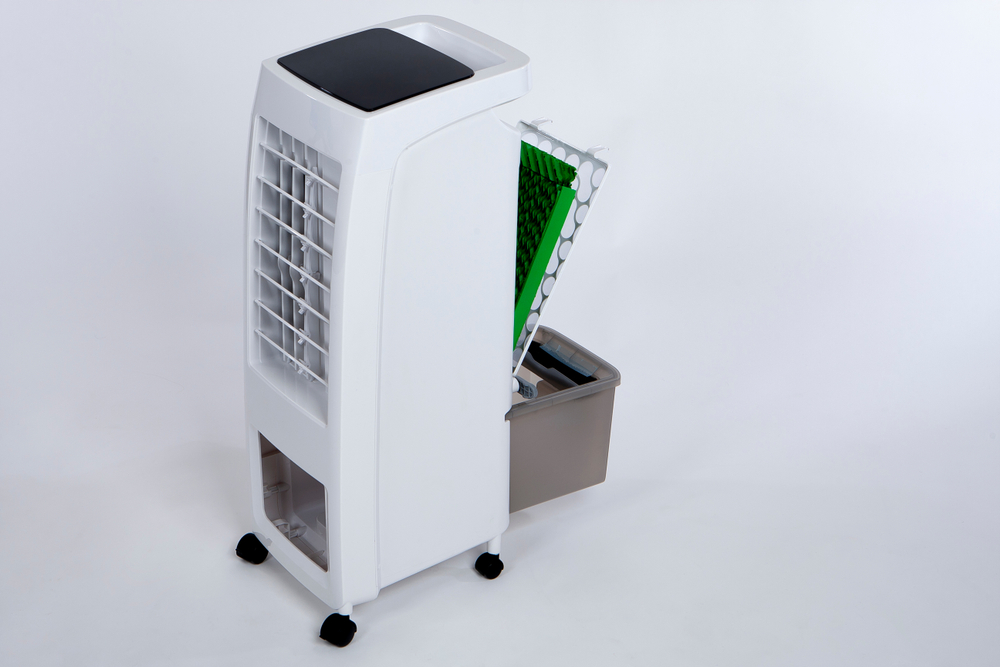
How to Stop a Portable AC from Leaking Water?
December 23, 2024 5:19 pm
Portable air conditioners (ACs) are a convenient cooling solution for homes and offices, but water leaks can disrupt their efficiency and cause significant inconvenience. When your portable AC is leaking water, it’s essential to identify the root cause and implement the right solution to prevent further damage to your unit or property.
Understanding How Portable ACs Manage Water
Portable AC units cool your space by drawing warm air over evaporator coils, where the air is cooled and moisture is extracted. This process creates condensate, which is typically drained away or evaporated. Modern units are designed to handle condensate efficiently through:
- Internal drainage systems: The water is collected in a reservoir or bucket that requires periodic emptying.
- Self-evaporative mechanisms: The condensate is re-evaporated and expelled through the exhaust.
- Continuous drain hoses: Water is directed out of the unit through a hose, preventing accumulation.
When these systems fail, you may find your portable AC leaking water.
Common Causes of Portable AC Water Leaks
Clogged or Dirty Drainage System
The most common cause of leaks in portable ACs is a blocked drainage system. Dust, debris, and algae can clog the drain line or reservoir, preventing water from flowing out properly.
Improper Installation
An improperly positioned unit can result in water leakage. If your AC is not level, water may spill out of the reservoir or bypass the drain entirely.
Excess Humidity
In areas with high humidity, the condensate collection system may become overwhelmed, leading to overflow. This can be exacerbated if the unit’s capacity is not sufficient for the room size.
Damaged or Disconnected Drain Hose
For units with continuous drain hoses, leaks can occur if the hose is kinked, disconnected, or punctured.
Malfunctioning Pump
Some units rely on a pump to move condensate to the drain. If the pump is faulty, water may accumulate and spill.
Frozen Evaporator Coils
When evaporator coils freeze, they can create excessive water when the ice melts, overwhelming the drainage system.
Troubleshooting a Portable AC Leaking Water
Inspect the Drainage System
- Check for blockages: Inspect the drain hose, drain pan, and reservoir for clogs. Use a soft brush or pipe cleaner to remove debris.
- Empty the reservoir: If your unit has a condensate collection bucket, ensure it is emptied regularly to prevent overflow.
Ensure Proper Unit Placement
- Place the AC on a flat, stable surface to maintain proper water flow.
- Avoid tilting the unit, as this can cause water to leak from unintended areas.
Address Humidity Issues
- Use a dehumidifier in conjunction with your AC in highly humid areas to reduce the workload on the unit.
- Ensure your portable AC is appropriately sized for the room; an undersized unit will struggle to manage excess moisture.
Examine the Drain Hose
- Check for kinks, disconnections, or damage. Replace the hose if necessary.
- Ensure the hose is properly angled to facilitate gravity-based drainage.
Inspect the Pump
- Test the pump’s functionality by pouring water into the reservoir and observing if it drains effectively.
- Replace the pump if it fails to operate as expected.
Clean or Replace Filters
Dirty air filters can restrict airflow, causing evaporator coils to freeze. Clean or replace filters regularly to ensure optimal air circulation.
Defrost Frozen Coils
- Turn off the unit and allow the ice to melt.
- Clean the coils to remove dirt or debris that could contribute to freezing.
- Check refrigerant levels, as low refrigerant can lead to coil freezing.
Preventive Measures to Avoid Water Leaks
Regular Maintenance
Perform routine maintenance on your portable AC, including:
- Cleaning or replacing filters every 1–2 months.
- Inspecting and cleaning the drain pan and hoses.
- Checking for wear and tear on components.
Monitor Room Humidity
Use a hygrometer to measure humidity levels and ensure your AC is environmentally friendly. For excessively humid conditions, consider additional dehumidifiers.
Proper Unit Installation
Ensure the AC is installed on a flat, stable surface with adequate clearance for airflow. Follow the manufacturer’s guidelines for setup.
Keep the Unit Clean
Dust and debris can clog components and lead to leaks. Wipe down the exterior, clean the vents, and vacuum around the unit regularly.
Inspect and Replace Components
Monitor parts like the drain hose, pump, and seals for damage. Promptly replace any worn or faulty components.
When to Seek Professional Help
While many water leakage issues can be resolved with simple troubleshooting, some problems may require professional assistance:
- Persistent leaks despite regular maintenance.
- Signs of refrigerant issues, such as frozen coils or reduced cooling efficiency.
- Unusual noises or performance irregularities.
Why Choose Premier Industries, Inc.?
At Premier Industries, Inc., we’ve been at the forefront of cooling solutions for over 30 years, manufacturing high-quality evaporative coolers in Phoenix, AZ. Our products are designed with lifetime stainless steel housings and high-efficiency cooling media to provide up to 98% cooling efficiency. If you’re looking for a long-lasting, innovative cooling solution for your home or commercial space, we can design and build equipment tailored to your needs.
Contact us today to explore our range of evaporative cooling systems and discover how we can help you achieve efficient and effective cooling. Let Premier Industries, Inc. bring you the perfect blend of quality, durability, and innovation for your cooling requirements. Give us a call to learn more!
Categorised in: Portable Evaporative Coolers
This post was written by Mike Nicolini

Comments are closed here.